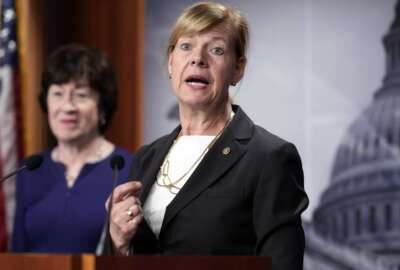The Federal Headlines is a daily compilation of the stories you hear discussed on Federal Drive with Tom Temin.
- The Navy would need about a 60 percent increase in yearly funding if it wants to reach a fleet strength of 350 ships, a plan endorsed by President-elect Donald Trump. The Congressional Budget Office said getting to 350 vessels would cost about $25 billion per year, over the next 30 years, which is far greater than the branch’s average annual funding of $13.9 billion. (Congressional Budget Office)
- The Office of Personnel Management said it took some important steps to modernize the federal personnel system and improve the hiring process. But it said the future Congress and administration need to have more serious conversations about civil service reform. OPM acting Director Beth Cobert reviewed OPM’s initiatives over the past eight years of the Obama administration in the agency’s exit memo. (Federal News Radio)
- The House passed a package of bills aimed at government oversight. The legislation includes the reauthorization of the Office of Special Counsel and grants the Government Accountability Office access to the National Directory of New Hires. The bills now head to the Senate for consideration. (Federal News Radio)
- President Barack Obama nominated inspectors general for major agencies. The President named his choices to fill the IG offices at OPM, the Defense Department, NSA and the Social Security Administration. Obama also nominated Carolyn Lerner to continue as special counsel for the Office of Special Counsel. The nominations also await Senate confirmation. (Federal News Radio)
- The White House replaced four memos with one new one to deal with data breaches. Agencies have six months to develop or update existing plans for how they would respond to a breach of personal data. The Office of Management and Budget released a new memo Tuesday telling agencies to revise how they should prepare for and respond to cyber incidents involving personal information. In its 47-page document, OMB detailed the minimum set of requirements agencies should consider in their plans. OMB also better defined a breach versus an incident and standardized in policy when agencies need to report to DHS, to its IG and to Congress. (The White House)
- A new challenge from the Federal Trade Commission offers a $25,000 award for tools to protect household Internet of Things devices from being hacked. Specifically, FTC is looking for apps or cloud-based services to check for vulnerabilities caused by outdated software and weak passwords. Submissions are due by May 22. The winners will be announced in July. (Federal Register)
- The Merit Systems Protection Board will be down to one member by the end of this week. MSPB Chairman Susan Tsui Grundmann will be stepping down Jan. 7, leaving Mark Robbins as the only voting member on the three-person board. It will not be able to act on any petitions until President-elect Donald Trump nominates one more member to reach a quorum. (Federal News Radio)
- The Marine Corps is facing a shortage of pilots — so much so that it’s asking officers who would normally be kicked out of the force to stick around for another three years. Generally, officers are forced to retire or separate from military service once they’ve been passed over for promotion to the next rank more than once. But in a message to the force this week, the Marines’ top manpower official told pilots at the rank of captain that they would be allowed to stay on in their current rank until 2020. All of the military services are facing increased competition from the airline industry. The Marines’ aviation program has been troubled in recent years, including by a higher number of accidents. The Defense Department inspector general is currently investigating whether the Marine Corps has enough pilots and aircraft to meet its mission-essential tasks.
- A panel of NASA scientists and engineers choose two missions to launch in 2021 and 2023. NASA capped development at $450 million each. Lucy will send a probe to Jupiter’s asteroid belt. Psyche will send one to an asteroid made of a mysterious metal. NASA hopes to gain insight into the early history of the solar system. Lucy and Psyche were chosen from among 27 submissions. (NASA)
Copyright
© 2024 Federal News Network. All rights reserved. This website is not intended for users located within the European Economic Area.





